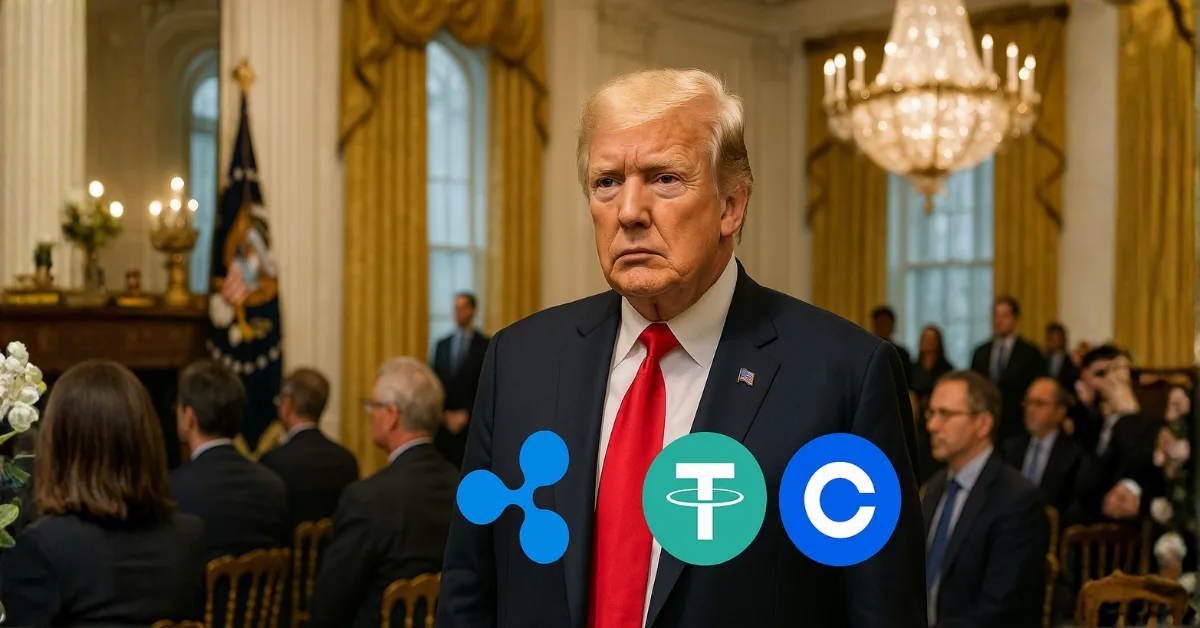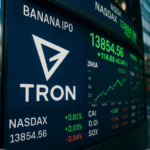Now Reading: Ripple, Tether, Coinbase Among Donors for Trump’s $300M White House Ballroom
-
01
Ripple, Tether, Coinbase Among Donors for Trump’s $300M White House Ballroom
Ripple, Tether, Coinbase Among Donors for Trump’s $300M White House Ballroom

WASHINGTON, Oct. 24, 2025 – Digital asset giants Ripple, Tether, and Coinbase have appeared on a list of donors contributing to President Donald Trump’s proposed $300 million White House ballroom project, according to newly disclosed campaign finance documents.
The participation of these crypto donors for Trump’s White House initiative marks a significant convergence. Specifically, it brings together the digital asset industry and high-stakes political fundraising, reflecting a calculated effort to gain influence.
Major Crypto Donors Join Trump’s Funding Initiative
Private contributions will primarily fund the ambitious project to construct a new grand ballroom on White House grounds. Consequently, recent campaign finance filings show that donations from crypto-linked entities are listed alongside those from established technology and finance backers.
This development therefore suggests that legacy fundraising circles now welcome crypto’s financial power. While the full extent of their commitments remains unclear, their inclusion alone signals a new chapter for blockchain campaign finance.
Ripple, Tether, and Coinbase Confirm Participation
In statements, company representatives framed their contributions as part of a strategy to support pro-innovation leaders. For instance, a Coinbase spokesperson stated the donation aims to “promote American innovation,” while Ripple said it wants to “foster dialogue with policymakers.”
Tether did not respond to a request for comment. However, its involvement aligns with the industry’s broader push for greater political visibility.
Crypto Donors Trump White House Policy Agenda
These donations, of course, do not exist in a vacuum. They follow a clear and escalating trend of crypto lobbying in Washington. In fact, data from OpenSecrets shows industry lobbying expenditures have more than quadrupled since 2022.
This latest move from direct lobbying to high-profile political donations subsequently challenges traditional engagement methods. Is crypto’s political strategy shifting from lobbying to direct influence?
Analysts Warn of Influence and Optics Risks
The growing financial involvement of crypto firms has naturally drawn scrutiny. Ethics watchdogs caution that large donations could create perceptions of quid pro quo arrangements, where financial support seemingly dictates policy. The optics of crypto donors for the Trump White House are a key point of contention.
Conversely, advocates argue this is simply democratic participation. They contend the industry has a right to support aligned candidates, especially while navigating complex regulatory waters.
Policy Stakes: Regulation, Stablecoins, and Clarity
At the heart of this outreach is the industry’s urgent need for regulatory certainty. As a result, major policy battles now loom over stablecoin issuance, custody rules, and federal taxation.
Top firms are therefore investing in political capital to secure a favorable position in future debates. Analysts suggest these contributions are a direct push for “regulatory visibility,” a finding echoed by many top best crypto platforms of 2025 that cite ambiguity as a risk.
Outlook: Crypto’s New Phase in Washington
With these contributions, crypto is waltzing closer to the halls of power. These donations represent more than just financial transactions; they are, in short, strategic maneuvers designed to embed the industry within the U.S. political establishment.
As the 2028 election cycle approaches, this trend is expected to accelerate. The key question now is a simple one. Will crypto donors become a fixture in U.S. political fundraising?
Key Takeaways
- Major Donations: Ripple, Tether, and Coinbase contributed to Donald Trump’s $300 million White House ballroom fund.
- Political Engagement: The move reflects crypto’s deepening financial involvement and shows how crypto donors for the Trump White House are expanding from lobbying to direct support.
- Regulatory Influence: Experts debate the optics and potential for regulatory influence, balancing it against arguments for democratic participation.
- Strategic Shift: This fundraising marks a new phase in the convergence between the crypto industry and U.S. policymaking.
















